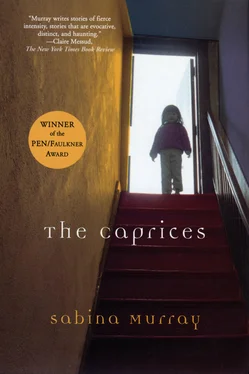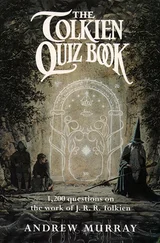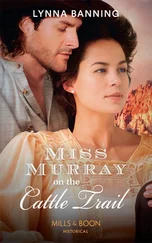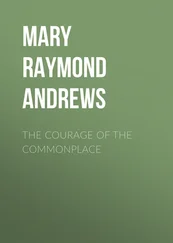And then Jim remembered. He had accompanied Sergeant Vinci to the front lines. A thick rot wafted in with the evening breeze. While Sergeant Vinci was conferring with the officers, Jim had gone to find the source of the smell. Jim watched men passing him, to the right and close by, but no one seemed bothered like he was. He walked to the beach where the majority of the foxholes were. In the waves he could see dark clouds in the water, but as his eyes grew accustomed to the dying light, he saw that they were bodies. The arms moved with the waves, animated like a child face down in the shallows who circles with his hands so as not to scare the fish. The waves washed on the shore and the bodies bobbed. Jim backed away from the water. He could not be horrified. He did not have the time.
There was the scraping of a shovel in the dirt and with it the low muttering of Tagalog. He surprised the digging man by pushing through the bushes. A Filipino soldier was digging a grave. Beside the grave was the still body of a boy, maybe thirteen. The soldier leaned on his shovel. He was not crying but his eyes were full of grief. Another shovel leaned against the tree. Jim thought, Whose shovel is that? Was it the boy’s? Was he supposed to assist in the digging of his grave? Then Jim thought that he should help. Jim began digging and soon the hole was deep.
“Your friend?” asked Jim.
“My brother,” replied the soldier.
Jim thought he had been in the house with them for weeks, but it had only been two days. He felt better now. He said to his friend, whose name was Totoy, “I’m ready for the good news.”
“You won’t die. We stopped the diarrhea. We give you leaf from the guava tree.”
“And now I am ready for the bad news.”
Totoy shook his head. “I am sorry. You cannot stay here. They will find and kill you anyway here. And they will kill us.”
Totoy’s sister, whose name was Clara, was standing by the window. She was crying. She said something to Totoy, and brushed her face with the back of her hand, bothered by the tears. She was more angry than sad.
“What did she say?” said Jim.
Totoy took a deep breath. “She called me something. She says the Japs will kill you. She says we should keep you here.”
Clara said something else.
Totoy sighed. “She says we might as well hit you over the head with a big rock. That would be better.” Totoy shook his head. “Boss, you can’t stay here. Look at her, look at my mother. .”
“I understand.”
“You are too sick to join the guerrillas.”
“What will you do with me?”
Four days had passed since Totoy had rescued Jim and now it was time for Jim to leave. Totoy and two of his friends loaded Jim into a water buffalo cart and covered him with old clothes. It was the only cargo Totoy could think of that would not interest the Japanese. Old clothes were thought to be crawling with disease. The cart rolled behind where the Americans and Filipino soldiers had marched, and there were bodies everywhere. Jim thought maybe one would get up and live again, as he had lived after dying. Totoy’s plan was to slip Jim into the camp, where he would at least be fed. It was only a matter of months before this war got cleared up, before MacArthur returned. Then they would have a big party. Totoy and Clara would come to pick Jim up, like parents going to get their kid at the end of summer camp. Jim went along with the plan and pretended everything was going to be all right. He had to believe it. He didn’t have a choice.
To get to Camp O’Donnell took a day and a half. They caught up with some of the stragglers from The March a half mile from O’Donnell and waited behind a clump of stripped papaya trees. Soon afterward, a GI began screaming for water. He was dead then, although he didn’t know it. His friends tried to calm him down, but the guards rushed at him and while the GI was beaten, Jim slipped into the crowd. He was half dead but standing, and in that was unremarkable. The water buffalo lapped its nose with its tongue and with a flick of its tail wished Jim good luck and goodbye. Totoy would not meet Jim’s stare. He feels guilty, thought Jim, but he should not. Jim’s pockets were full of guava leaves.
Jim thought of Clara in the camp, although they had not really talked. Her English was not bad, but she didn’t like her accent, so she didn’t use it. He had asked her, “What is golly bear? ”
And she had conferred with her brother.
Totoy said, “It is American. Golly Bear. He is very big and is rescued by very small people. Like you. Very big. Like us. Very small. It is Clara’s name for you. Golly Bear.”
In his first few weeks at O’Donnell, Jim had daydreamed about the house near San Fernando. He wondered what it would have been like if he’d stayed there. He imagined himself growing strong, becoming a one-man army, a slaying machine who hid by day in the rafters, and by night picked off Jap after Jap. And Clara was a part of this dream, her soft hands and straight teeth. But after a couple of months, Jim only thought of food. The men were dying all around him. Beriberi. Malaria. Dark moods that made men sit down and never stand up again. He had seen a Japanese officer, the one they called the Frisco Nip because he had lived in California, decapitating Ned Thomas. Ned’s body had been on the ground draining into the earth through his neck. Ned would not get up and walk, as Jim had, but Jim wished he would. He tried to raise Ned with the power of thought, thinking that if faith could move mountains, hatred must do more. But Ned didn’t listen, just lay there. Jim imagined Ned’s headless body going after the Japs, demanding the return of his head. He imagined all the dead men coming back from the burial fields, all those GIs and the million Filipinos, rattling on the gates of the camp, demanding compensation for their lives.
Jim’s army of the dead coming to save him, take him away, had kept him alive. Now Jim found his dreams of salvation unsophisticated, even funny. He had been eighteen years old when Bataan fell. His idea of revenge was fed by comic books and movies. Jim had survived like a man, but had suffered like a child, bewildered and vulnerable. He had stopped counting the deaths of his friends when the number hit twenty. He had buried many more than that. He was lucky to be young, lucky that his brain could not fully comprehend the camp.
After O’Donnell, there was the ship to Japan. This was in late 1944, although Jim didn’t know what year it was at the time. In the hold of the ship, ankle deep in water and excrement, Jim had made the journey to Japan. The light made its way into the hold only where rust had done its work. There was no place to lie down, no room to sit comfortably. The iron tub in the center of the room was used for water in the morning, as a urinal through the rest of the day. People died standing up, unable to rest even in death. Jim had no fear of boats in later years, but could not go to the movies. The darkness, the people packed so close, and the single shaft of light, took the breath out of him. Made him sweat and shake.
In Japan, Jim had worked in a steel mill in Honshu. The winter was cold and he had slept wrapped in a paper blanket. The men huddled together at night, sleeping like mice. The work details were long and many soldiers died with picks in their hands. The guards were armed with sticks. Jim thought there was something biblical about this labor. He remembered the Jews in Egypt, but thought he had it worse. The Jap supervisor was Sergeant Matsuo. Matsuo was tall and spoke in polite tones, but Jim never learned more than a few Japanese words. Matsuo oversaw the deaths of more than fifty men that Jim knew, but more somehow survived. And when word came that Japan had finally lost, these men rose up. Jim wondered what Matsuo’s final thoughts had been when he was overcome by his crew of skeletons, half naked, toothless, and gray with dust from working so long inside the earth. They had pulled Matsuo from his quarters.
Читать дальше












